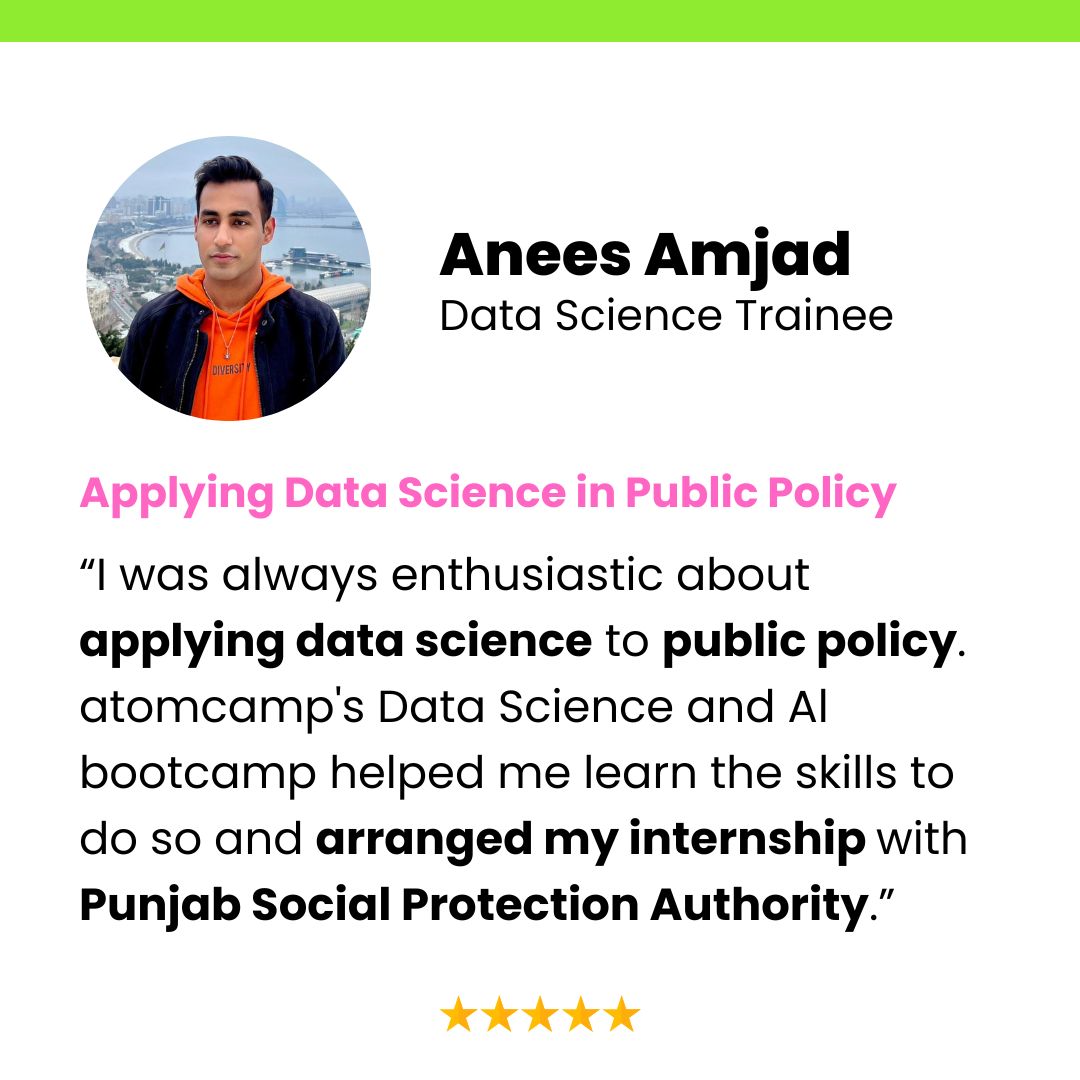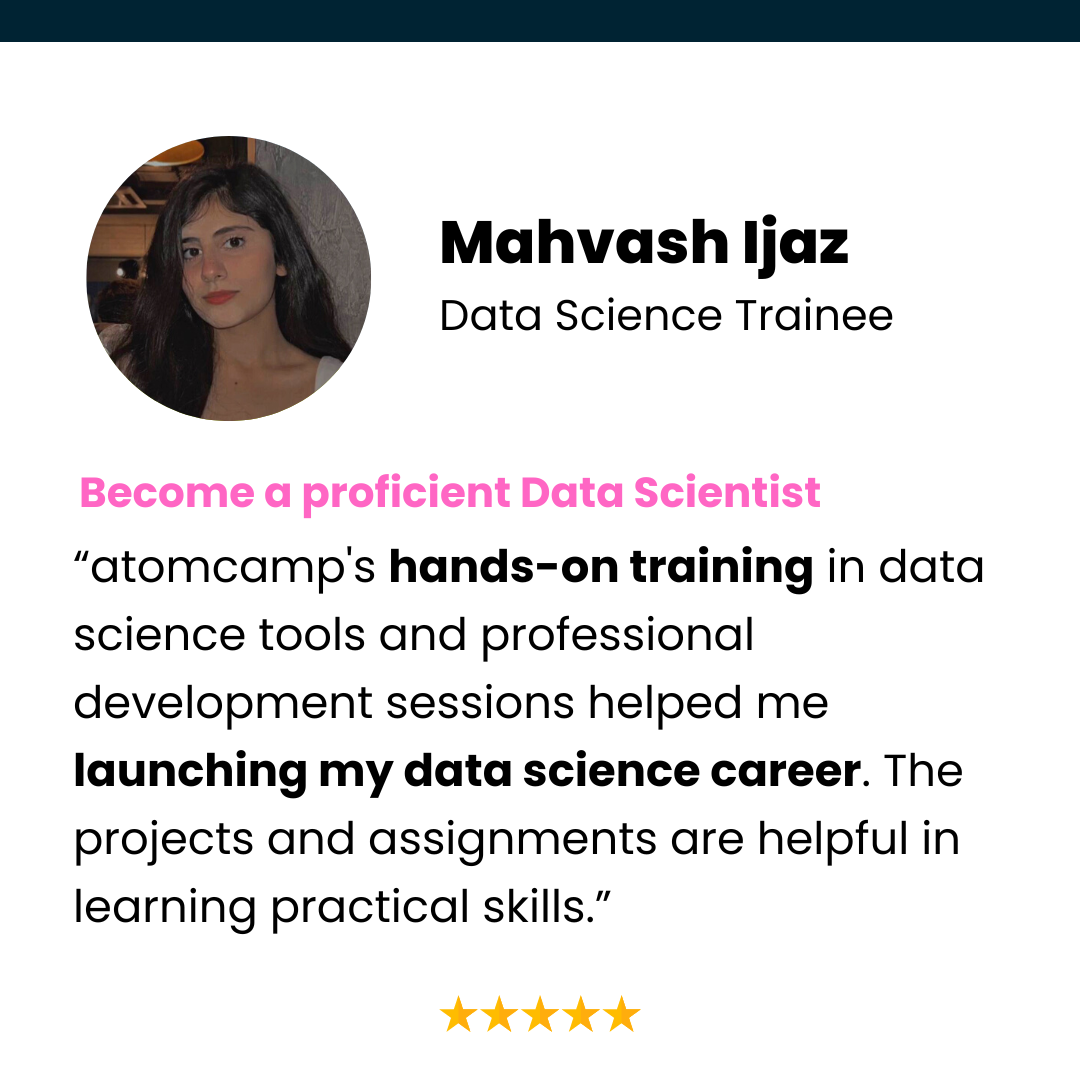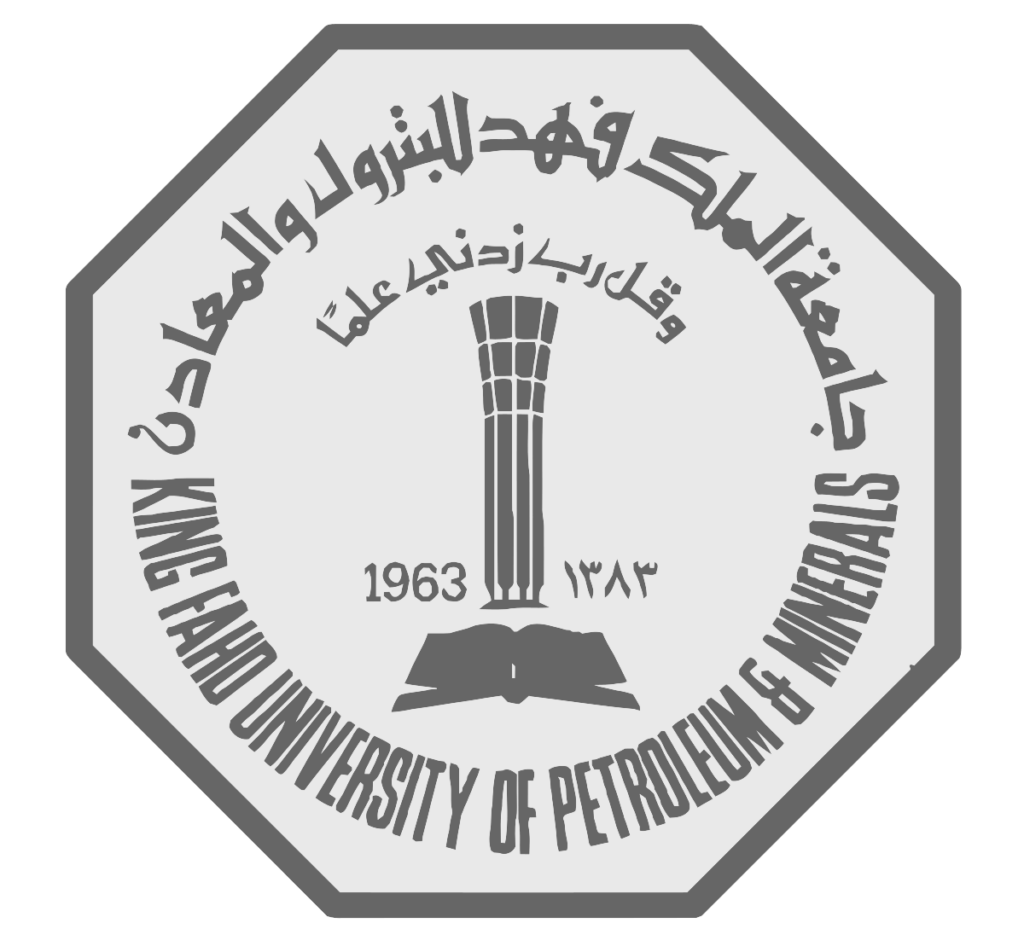

Machine Learning Bootcamp
- Online
- 2 Months
- 19th August
- Monday-Friday, 7:00 PM - 9:00 PM
Course Description
The Machine Learning Bootcamp is an intensive, two-month online program designed to equip participants with comprehensive skills in exploratory data analysis, machine learning, and machine learning operations (MLOps). This bootcamp is ideal for aspiring data scientists, machine learning engineers, and AI enthusiasts who want to deepen their understanding and practical skills in these domains.
Participants will engage in a series of interactive sessions, including theoretical lectures, hands-on practice, and real-world project applications. The curriculum is divided into two main modules: Exploratory Data Analysis (EDA) and Machine Learning, and Machine Learning Operations (MLOps). Each module is carefully crafted to build on foundational knowledge and progress towards advanced topics, ensuring a holistic learning experience.
Course Curriculum
Exploratory Data Analysis (EDA)
- Importance of EDA
- Data Cleaning and Preprocessing: Handling missing values, data transformation, and scaling
- Data Visualization: Using Matplotlib and Seaborn to visualize distributions and relationships
Introduction to Supervised Learning
- Supervised Learning Concepts: Difference between supervised and unsupervised learning, regression vs. classification
- Linear Regression: Building and evaluating linear regression models with NumPy and scikit-learn
Classification Techniques
- Logistic Regression: Building and evaluating logistic regression models with scikit-learn, model evaluation metrics
- k-Nearest Neighbors (k-NN): Implementing k-NN with scikit-learn
Practical Applications
- Case Studies: Real-world applications of regression and classification
- Hands-on Projects: Building and evaluating regression and classification models on provided datasets
Decision Trees and Ensemble Methods
- Decision Trees: Building and visualizing decision trees, overfitting and pruning
- Ensemble Methods: Random Forests, Gradient Boosting Machines
Model Evaluation and Optimization
- Model Evaluation Techniques: Cross-validation, hyperparameter tuning using GridSearchCV and RandomizedSearchCV
- Feature Engineering: Techniques for feature selection and creation
Neural Networks with TensorFlow
- Introduction to Neural Networks: Understanding neural network architecture, activation functions, and loss functions
- Building Neural Networks with TensorFlow: Implementing a neural network for multi-class classification
Advanced Neural Networks
- Deep Learning Techniques: Convolutional Neural Networks (CNNs), Recurrent Neural Networks (RNNs)
- Practical Applications: Hands-on project using TensorFlow for image or text classification
Unsupervised Learning Techniques
- Introduction to Unsupervised Learning: Applications of unsupervised learning
- Clustering Techniques: k-Means Clustering, Hierarchical Clustering, evaluating clustering results
Anomaly Detection
- Techniques for Anomaly Detection: Isolation Forest, One-Class SVM, practical implementation with Python
Recommender Systems
- Introduction to Recommender Systems: Types of recommender systems
- Collaborative Filtering: User-based and item-based collaborative filtering, implementing collaborative filtering in Python
Advanced Recommender Systems
- Content-Based Recommenders: Building content-based recommenders
- Deep Learning for Recommenders: Implementing deep learning-based recommenders using TensorFlow, case studies and hands-on projects
Introduction to MLOps
- Overview of MLOps: Key components and workflow
- Setting Up the MLOps Environment: Tools and platforms (e.g., Docker, Kubernetes), environment setup and configuration
Continuous Integration and Continuous Deployment (CI/CD) for ML
- CI/CD Concepts for ML: Differences between traditional CI/CD and CI/CD for ML
- Building CI/CD Pipelines: Implementing CI/CD pipelines with tools like Jenkins, GitLab CI, or GitHub Actions, automating testing, training, and deployment of ML models
Model Monitoring and Maintenance
- Monitoring ML Models in Production: Techniques for monitoring and logging
- Model Maintenance and Management: Handling model drift and retraining, versioning models with tools like MLflow
Best Practices and Capstone Project
- Best Practices in MLOps: Ensuring reproducibility and traceability, security and compliance, ethical considerations
- Capstone Project: Comprehensive project incorporating MLOps practices, deploying a model, setting up a CI/CD pipeline, monitoring model performance, and handling model updates and maintenance
STANDARD MONTHLY
-
For 2 Months
LUMPSUM
-
For 2 Months
Check your Eligibility
Currently enrolled or have graduated with a bachelor’s degree in:
– Computer Science or related fields
– Any Engineering Discipline (Mechanical, Electrical, Civil etc)
Complete our Bootcamp and Become Job Ready
We help our successful graduates find Jobs and Internships, and also provide guidance in discovering Freelance opportunities.





We are excited to announce that our graduation ceremony will take place at FAST, Islamabad.
Key Features
Industry Ready Portfolio
Craft a portfolio that showcases your industry-ready data science projects.
Enhance your career by learning Data Science and Machine Learning
Strengthen your data skills and excel in your existing career.




Earn a Verified Certificate of Completion
Earn a data analytics certificate, verifying your skills. Step into the market with a proven and trusted skillset.

Trusted By Leading Companies










Hear from our students
Husna Afzal
Eesha Arshad Khan
Sadeen Farid
Pricing Plans
STANDARD MONTHLY
-
Standard Monthly
-
For 2 Months
LUMPSUM PAYMENT
-
Lumpsum (Advance Payment)
-
For 2 Months






